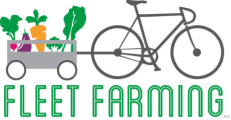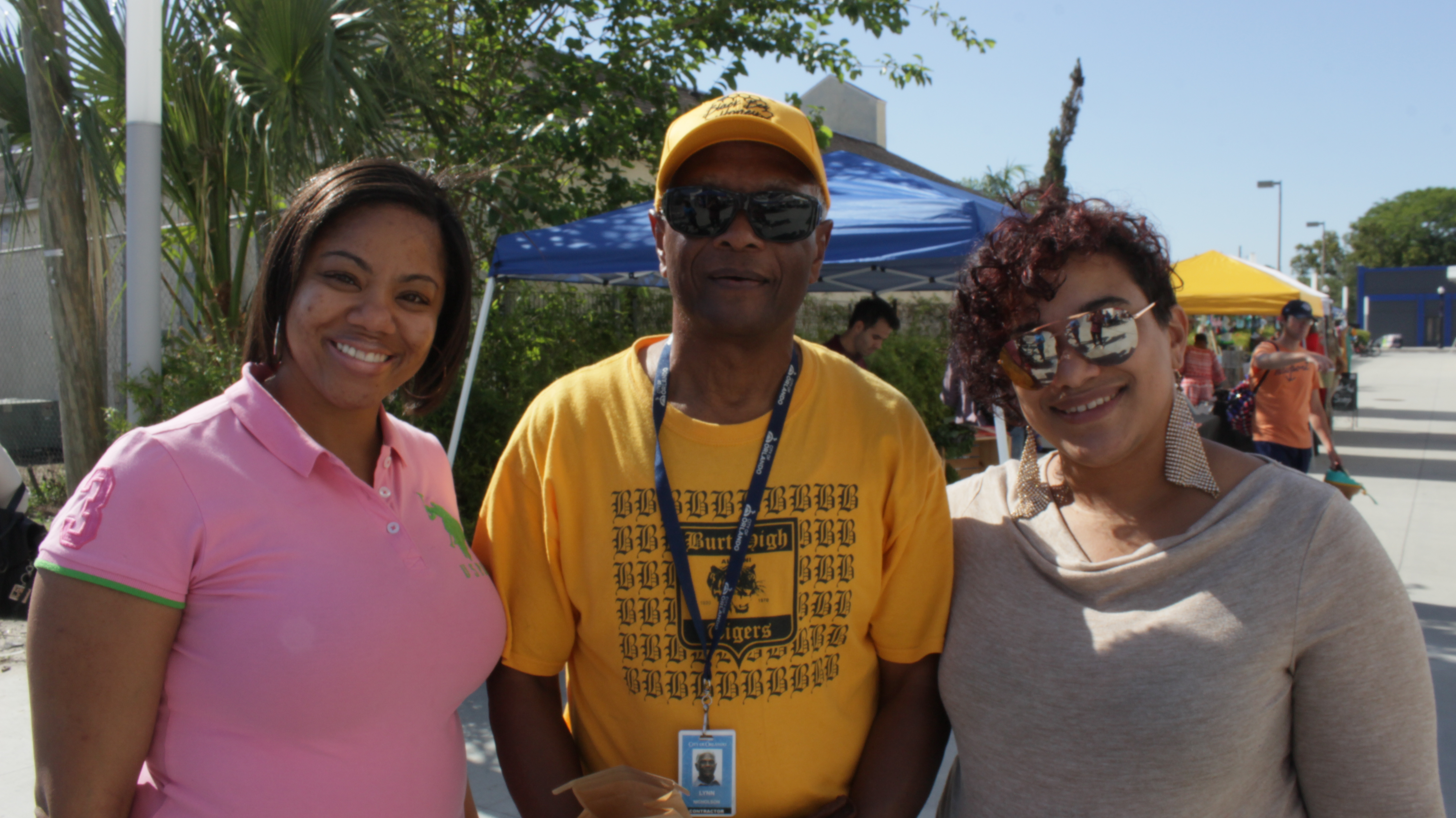Lynn Nicholson and Aminah Hamidullah, longtime residents and activists in the Parramore community, spoke with Fleet Farming’s very own Lee Perry to discuss America’s shift from community supported agriculture to our current industrialized food system. Growing up between Tallahassee and Tampa, Florida, Aminah recalls her mother’s garden.
“I grew up where my mother was a vegetarian and she grew all her veggies. She knew so much about growing veggies that she had every neighbor plant something different so that when it was time to harvest, everybody harvested their plants and they gave each other all across Inlet Street, ‘cause we lived on a road called inlet street, and so everybody grew something different so when it was time to harvest we got together and they share whatever they had grown and of course, uhm, she was so good at what she did that she actually grew rootbeer.”
Lynn grew up in Tennessee, working on his father’s farm as a farmer by inheritance.
“And all I ever knew was farming, I mean, I was working with them when I was six years old. I was out there-he’d be ploughing with a mule or a horse- the horse name was Marley and the mule’s name was George, I remember that [both Lee and Lynn chuckle]…We’d plough. My brother didn’t like it, I kind of enjoyed working in the soil. So, we did that and my father, what he did was, he purchased land-the man didn’t have any education, he couldn’t read or write but he had enough sense to purchase land. He was always a landowner, we didn’t have to rent, and he owned a store. He was just a natural entrepreneur[…] He would plough areas for other people and they would give him a portion of the harvest[…] My sister said we was poor but we had everything that we needed, all right?”
Lynn, Lee, and Aminah recall a time when communities, especially those of “low-income” (arguably, according to Lynn) were more interconnected. As Lee explains, “When you’re poor you watch each other’s back, you watch each other’s kids, and the whole community’s your family.” Similar to Aminah’s example of her mother’s community crop exchange, Lynn explained that in his community, “we shared everything we had. I mean my father would share anything and everything.”
Yet, the small farming communities, such as the ones Aminah and Lynn grew up in, have become a rarity in the U.S. and we have seen a decline in such community supported farming. In African American communities especially, sharecropping debt played a major factor in this decline. Lynn talks about how the financially constricted situations of sharecroppers in the mid-1900s caused many to move away from farming and into the cities.
“they [members of Lyn’s community] left the farms because[…] they worked for somebody else on the land and they could never get ahead because of the games people playin back then… they [landlords] would make sure that they [sharecroppers] never got ahead. What they would do is they give you so much, you plant a crop, and you was supposed to pay the person back. It never quite happened that way, they was always in the hole. And to get away people had to leave, even during the middle of the night sometimes, just to escape to the larger cities. They left those country places and jumped on a freight train or whatever got a ride to some place like Chicago or Detroit. That’s what they did in my hometown.”
Another reason Aminah attributes to the decline in farming communities is because the advent of television and racial integration exposed people to the glamour of an urban lifestyle.
“I think one of the things, what Lynn was saying, that really caused problems for particularly African Americans is that some of us grew up a certain way, maybe poor, what have you… and I think [African Americans] was so desperately trying to have what they saw others have, that they decided that they would like what everybody else was doing. And they did not see people that had farming. [In their communities] they did not see people that they wanted to be like [, they did not see] people that they was working for, doing the things that they was doing at home. So, therefore, when they would go to the city or not, even if not in the city—they was going to school through integration—they would see that people that they wanted to have as much as[…] So, all of a sudden, a farming group or wanting to garden was not too cool, because their friends that they met in school, that wasn’t in the same neighborhood that they was in, wasn’t farming[…] technology caused them to stop that tradition of growing things for themselves and start going to Publix because people that they wanted to be like was going to Publix”
Adding to Aminah’s point, Lee brings up the role of convenience in the decline of small-scale farming communities. Lynn points out that, “when the supermarkets came into play, people didn’t have to plan for themselves, they could just go to the supermarket and purchase whatever they wanted.” Convenience, a key feature of urbanized societies, has taken a major toll on people’s quality of life though. Lee asks, “why is the loneliness and the isolation increasing so rapidly if this convenience is right at our fingertips?” Aminah’s explanation is because
“those [conveniences] are externals, those are not internals. Those are external happinesses, that’s not internal. None of that helps you if you’re not happy from the inside. So that’s why I feel like we have to help that through gardening. If we can get them to eat foods that’s good for them on the internal, then the outside you’ll see it.”
So, what is our solution to this disconnect with farming, feeding ourselves, and developing solidarity in our communities? Lynn says, “We ought to get back to family values and understand we are family. We may not always be blood connected but we are family. And we have to get to that perspective.” Aminah shares Lynn sentiment when she explains her feelings about food insecurity saying, “it just tears at your heart when you know that you’re eating and going to sleep in a warm bed and your brothers and sisters are not[.]” Fleet Farming, Aminah’s Knowledge for Living, and Lynn’s Parramore Community Garden work to be “community assets” as Lee says. These assets engage the community in a way that Aminah says “is about trying to help this community do for themselves through education.” By teaching gardening through the Parramore Community Garden and other skills through Knowledge for Living classes on financial management and youth cooking courses, Lynn and Aminah are working to restore the social solidarity that once helped Parramore thrive. Lee too says that she hopes Fleet Farming can be an asset to Parramore residents, just as Lynn and Aminah have been.

